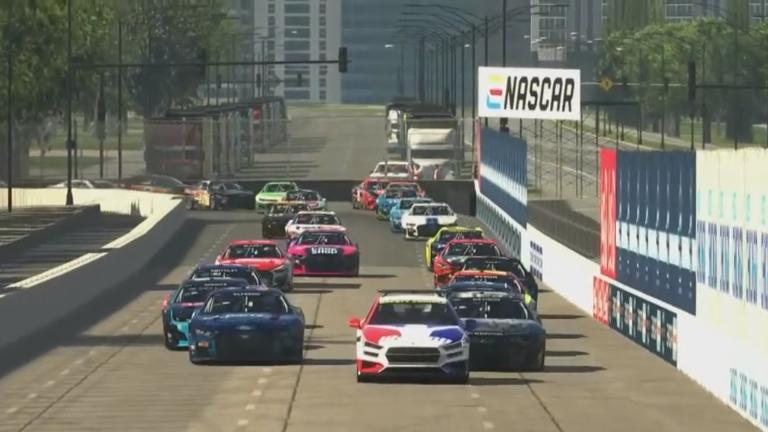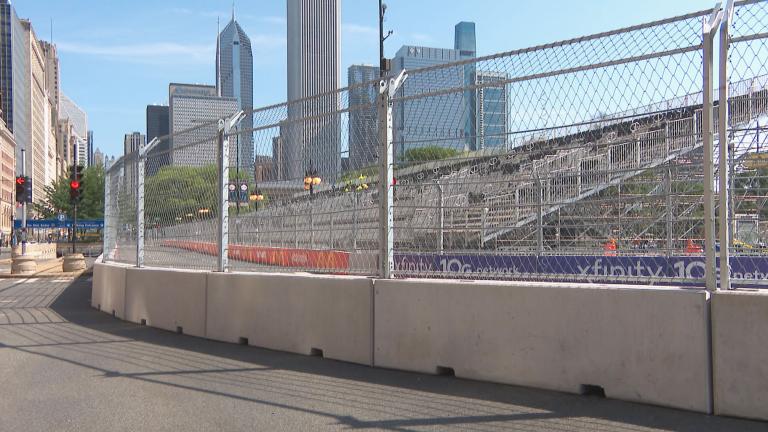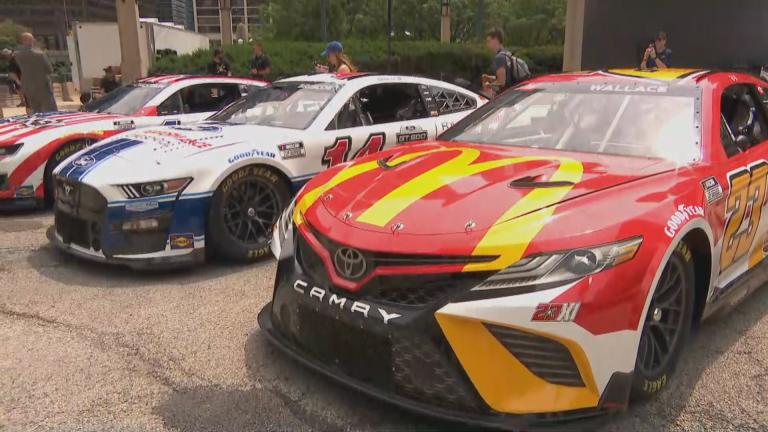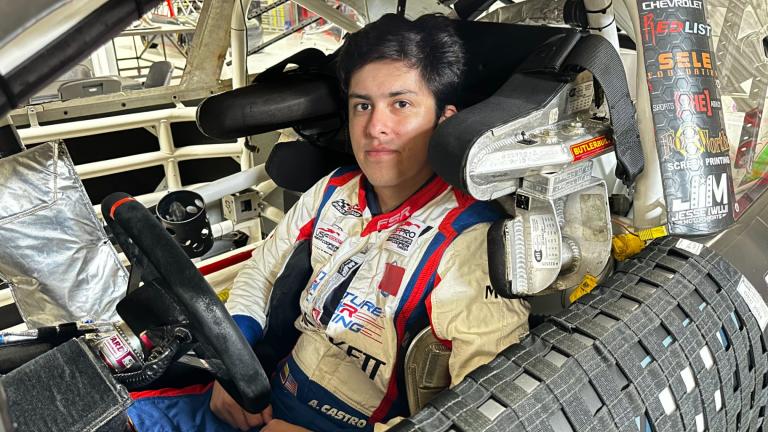City leaders and officials in charge of making sure the NASCAR race set to transform the streets of downtown Chicago into a racetrack sought Wednesday to reassure worried members of the Chicago City Council that the two-day extravaganza will be a success — despite significant street closures sure to snarl traffic citywide.
Former Mayor Lori Lightfoot approved plans for the first-ever NASCAR street race to take place in Chicago on July 1 and July 2 before she left office — without asking the Chicago City Council to sign off on the event that has already started closing streets around Grant Park and will limit access to the park.
For months, Lightfoot blocked demands from furious members of the City Council to hold hearings about the race and rebuffed criticism.
Ald. Daniel La Spata (1st Ward), now chair of the City Council’s Pedestrian and Traffic Safety Committee, wasted no time in using his new perch to focus the City Hall spotlight on the race, and put not only NASCAR officials but also city leaders on notice that Mayor Brandon Johnson and his allies on the City Council were watching closely.
“We are here to provide oversight and accountability,” La Spata said.
Ald. Brendan Reilly, whose 42nd Ward includes much of downtown, said Lightfoot and her administration “hid” plans for the NASCAR race in Chicago from the City Council, and blamed the former mayor for the “negative publicity” about the race.
“There was no transparency,” Reilly said, calling Lightfoot’s handling of the matter “ham handed” and blasting her for refusing to consult with the City Council.
Video: The WTTW News Spotlight Politics team discusses the NASCAR Chicago Street Race and other top stories. (Produced by Alexandra Silets)
NASCAR’s Julie Giese, who is in charge of the race, said she was confident the event would avoid all of the possible potholes and showcase Chicago in its summertime glory for a national audience.
Giese tried to put the simmering anger over the way Lightfoot gave NASCAR the green flag to come to Chicago in the rearview mirror, and pledged to collaborate with the City Council in the coming days and weeks.
“We have worked really hard to be open and accessible,” Giese said, promising that a “safe and successful” race will add $113 million to Chicago’s economy while showcasing the city’s attributes on national television. In return, NASCAR will get a chance to reach potential new fans in cities like Chicago by enthralling them with the spectacle of an urban downtown transformed into a NASCAR racetrack.
Spectators will be protected from the speeding race cars by interlocking concrete barriers that weigh 10,000 pounds each, and four feet of fencing, Giese said.
Plans were in place to allow access to downtown museums and other cultural attractions, despite the road closures, she added.
In response to alderpeople’s questions, Chicago Police Deputy Chief Dan O’Connor acknowledged that all officers will have their regular days off canceled because of the race. Officers will also be asked to volunteer to work overtime shifts, O’Connor said.
Officers typically have their days off canceled around major holidays, a point of intense tension between department leaders and the union that represents rank-and-file officers.
But the demands of protecting the 50,000 people who paid at least $269 for two-day general admission tickets won’t leave Chicagoans unprotected in their neighborhoods, O’Connor promised.
Those who cannot afford a ticket can get a glimpse of the spectacle by heading to Butler Field, where they will be able to see into race teams’ garages and enjoy music, games and other attractions, Giese said.
Contact Heather Cherone: @heathercherone | (773) 569-1863 | hcherone@wttw.com






